Back to the farm: Africa’s youth power up food security
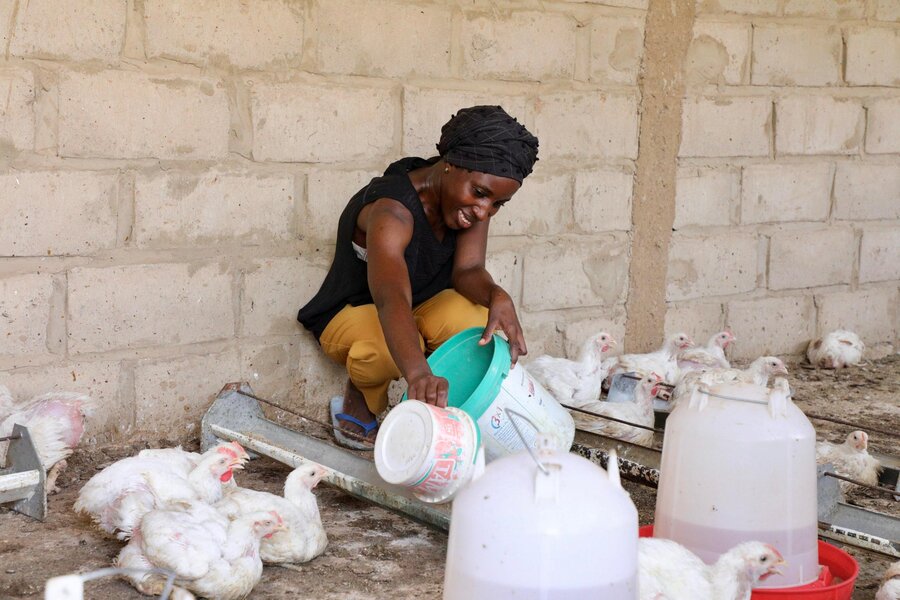
Marie Diongue’s wealth lies right at her feet: in the hundreds of fluffy white chickens strutting around the cement floor of her coop in northwestern Senegal.
“I don’t depend on anyone anymore - I earn my living,” says the 26-year-old poultry farmer, describing her transformation from scraping by to managing a flock of 300 chickens she hopes will grow into thousands.
“Agriculture is not a Plan B,” Diong says. “It’s a real path.”
For many young Africans, agriculture has not always been Plan A. They did not consider farming a profitable profession. They looked elsewhere for jobs and opportunities: including in Africa’s towns and cities, helping to feed the world’s fastest rate of urbanization. Many also lacked access to information, resources, skills and capital to create viable agribusinesses.
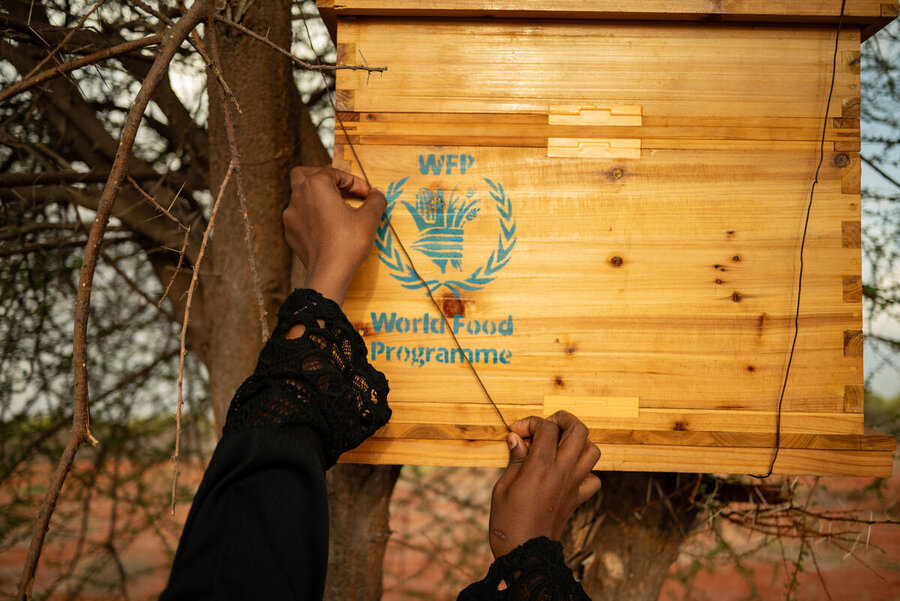
But today, a growing number of young people, including university graduates, are turning back to the land - tying their futures to farming, livestock raising and other rural professions, partly thanks to support from the World Food Programme (WFP) and the Mastercard Foundation.
In 2022, the two organizations partnered in a five-year initiative to strengthen food systems and help Africa’s next generation harness jobs in the agricultural sector. To date, 459,000 young people have been reached by the project across eight African countries. They're learning new skills and practices, and accessing markets, financing, inputs, networks and new technologies that start them on the road towards self-reliance and economic empowerment.
“This is what youth-led African agriculture looks like: vibrant, determined and full of promise,” says Margot van der Velden, Regional Director at WFP’s Western and Central Africa Regional Office. “With Mastercard Foundation, we’re sowing the seeds of a future that is resilient and brimming with opportunity for the talented young participants of this project - a future they will shape.”
Unlocking resilience
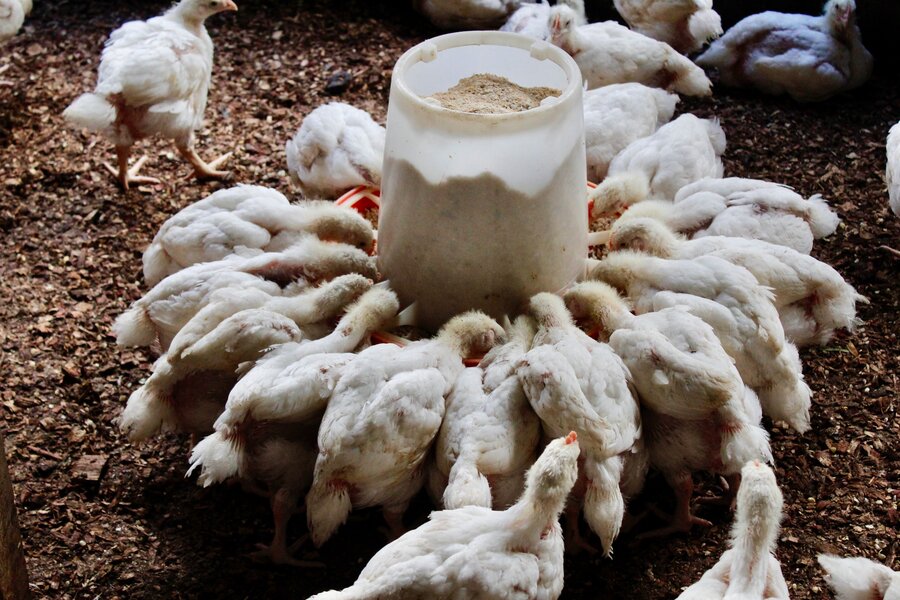
In the Senegalese village of Bokhal, not far from the Mauritanian border, Diongue grew up watching her mother raise chickens. “Poultry farming was part of everyday life,” she says.
When she dropped out of school, Diongue took up the family profession. But while she knew how to raise chickens, she didn’t know how to sell them or run a business. “It was complicated,” she recalls. “I was losing money, time and courage.”
In 2024, Diongue joined the initiative, after hearing about it from friends. She received a starter kit of chicks, feed, equipment and vaccines. Since then, she has grown her 50-chicken starter flock to 300, who peck at their feed piled in long metal troughs.
“The project didn’t just give me equipment, it opened my eyes,” Diongue says. Most important, she says, was its hands-on training: on how to manage her business, follow up with clients and improve her poultry marketing. “That’s the part that changed my life,” she says.
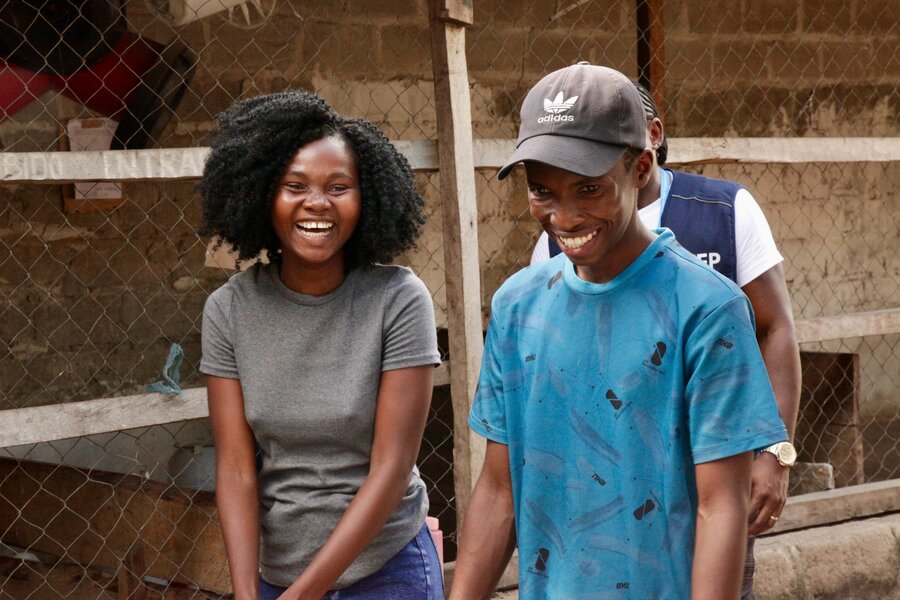
Half a continent away, in the central Mozambican town of Mocuba, university students Aida António and Pinto Castigo Mbiza are also betting on chickens. Like Diongue, with support and training, they’ve seen their poultry operation grow from 200 to 600 birds.
“We pay for our college with the money that comes from there,” says António, 28, who studies agricultural economics and animal science.
The two are dreaming big: aiming to eventually produce up to 30,000 chickens yearly, and sell their meat countrywide. “We are young and motivated,” says António.
The project especially reaches out to young women, who face a special set of professional challenges, including discrimination and limited access to decision-making positions.
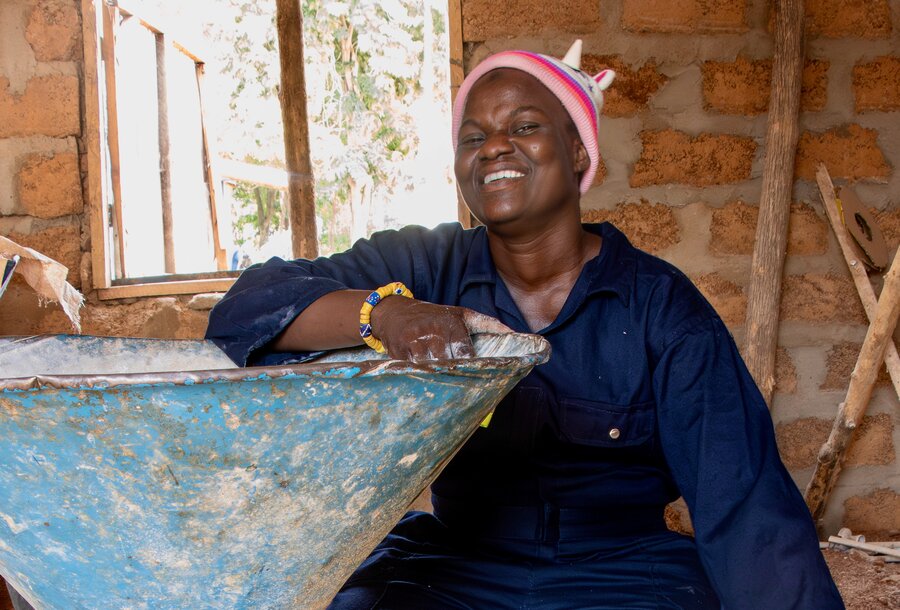
In Ghana’s Northern Region, Bintu Zakaria dreamed of becoming an agricultural engineer, but deep poverty and family resistance prevented her from pursuing her studies. Despite early marriage and motherhood, Zakaria did not give up. She eventually earned a degree from an agricultural college hundreds of kilometres from home.
A training programme under this project later gave Zakaria valuable hands-on experience – along with a driver’s license and a job repairing machines and providing engineering services for local food processors.
“I’m very happy,” says the mother of three, describing how she is breaking gender stereotypes through her job. Of the project’s support, she adds, “it made me realize my dream.”
Like Zakaria, other young people with university degrees are heading back to the land – in a continent where youth unemployment is high, and formal wage-paying jobs are limited.
“I graduated with a degree in business administration,” says 24-year-old farmer Khalid Hassan, who lives in northern Kenya. “But I chose farming because not everyone can get an office job.”
Thriving off the land
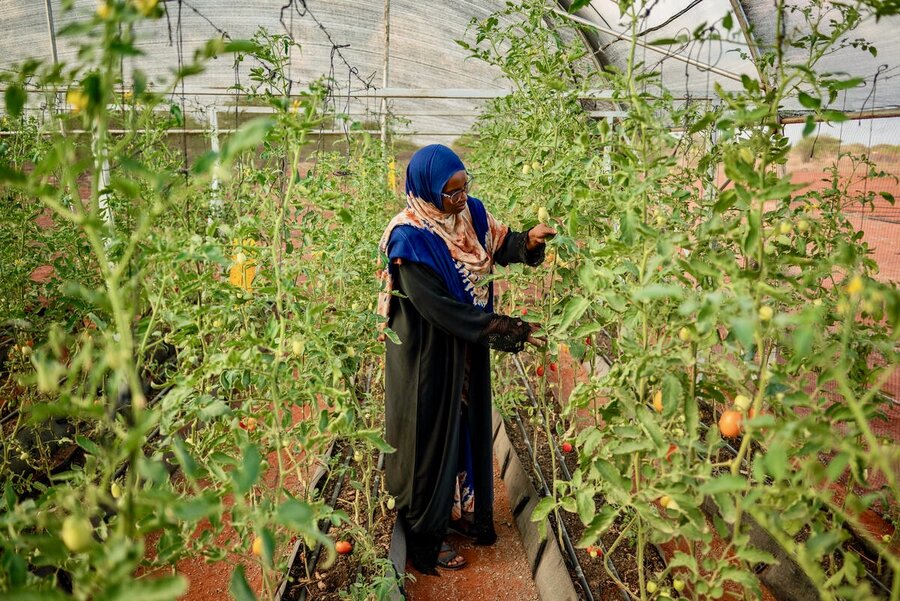
In Wajir County, an arid region of Kenya known mostly for herding, Hassan and fellow university graduate Meimuna Said are thriving off the region’s often-parched land. Working with county governments and private partners, the Kenya branch of the project gives young farmers training in climate-smart agriculture and business skills, and helps them access credit and technology like rainwater harvesting, solar powered pumps and drip irrigation.
“Before WFP’s training, I was farming on a small scale,” says Hassan, who grows a raft of crops, including onions, tomatoes and nutrient-rich orange-flesh sweet potatoes. “Now, I grow enough to supply schools, restaurants and local vendors. Local demand is so high, I can’t meet it all – and that’s a good problem.”
Hassan and Said also keep bees and poultry, and raise some livestock. That allows them to diversify their families’ livelihoods, income and diet, and build resilience against increasingly intense and frequent weather extremes. They aren’t moving away from their pastoralist traditions, they say, but rather combining them with farming in ways that benefit both.
Now, the two farmers are sharing their knowledge and skills with their peers, through networks known as Farmer Service Centres. “It’s like being a consultant,” says Said. “I don’t just farm - I support others to succeed too.”
“People see me as a leader, a change-maker,” adds Hassan, motivating him to do more, he says, not just for himself, but for his community.
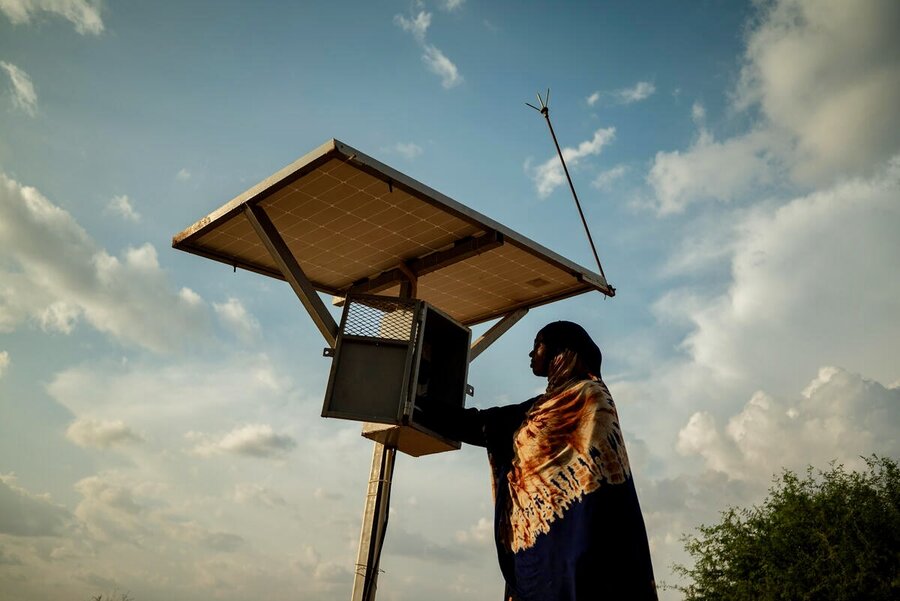
Here and across the continent, young people are proving that farming can be smart, sustainable, and empowering. Their stories may start at the chicken coop, a vegetable patch, or a workshop in a local village. But they point to something bigger: a shift in how these young people and their communities grow, eat and thrive.
To fuel that shift and truly unlock Africa’s vast agricultural potential, more organizations must join forces to invest in the continent’s youth.
Back in northern Senegal, Diongue is also planning her future. She wants to multiply her chicken business to up to 2,000 chicks, and launch a cattle fattening venture.
Like her Kenyan counterparts, she hopes to set an example. “To show other young people that it is possible” to start a business or farm successfully, she says. “You just have to believe in it – and be well accompanied.”
Learn more about WFP's work in Ghana, Kenya, Mozambique and Senegal
In 2022, the UN World Food Programme (WFP) and the Mastercard Foundation embarked on a five-year partnership to strengthen food systems and promote increased job opportunities along agriculture value chains for young people in vulnerable communities across Africa. The collaboration is making local agri-food systems more efficient, sustainable and inclusive for young people – particularly women – in eight African countries: Ghana, Kenya, Mozambique, Nigeria, Rwanda, Senegal, Tanzania and Uganda.
